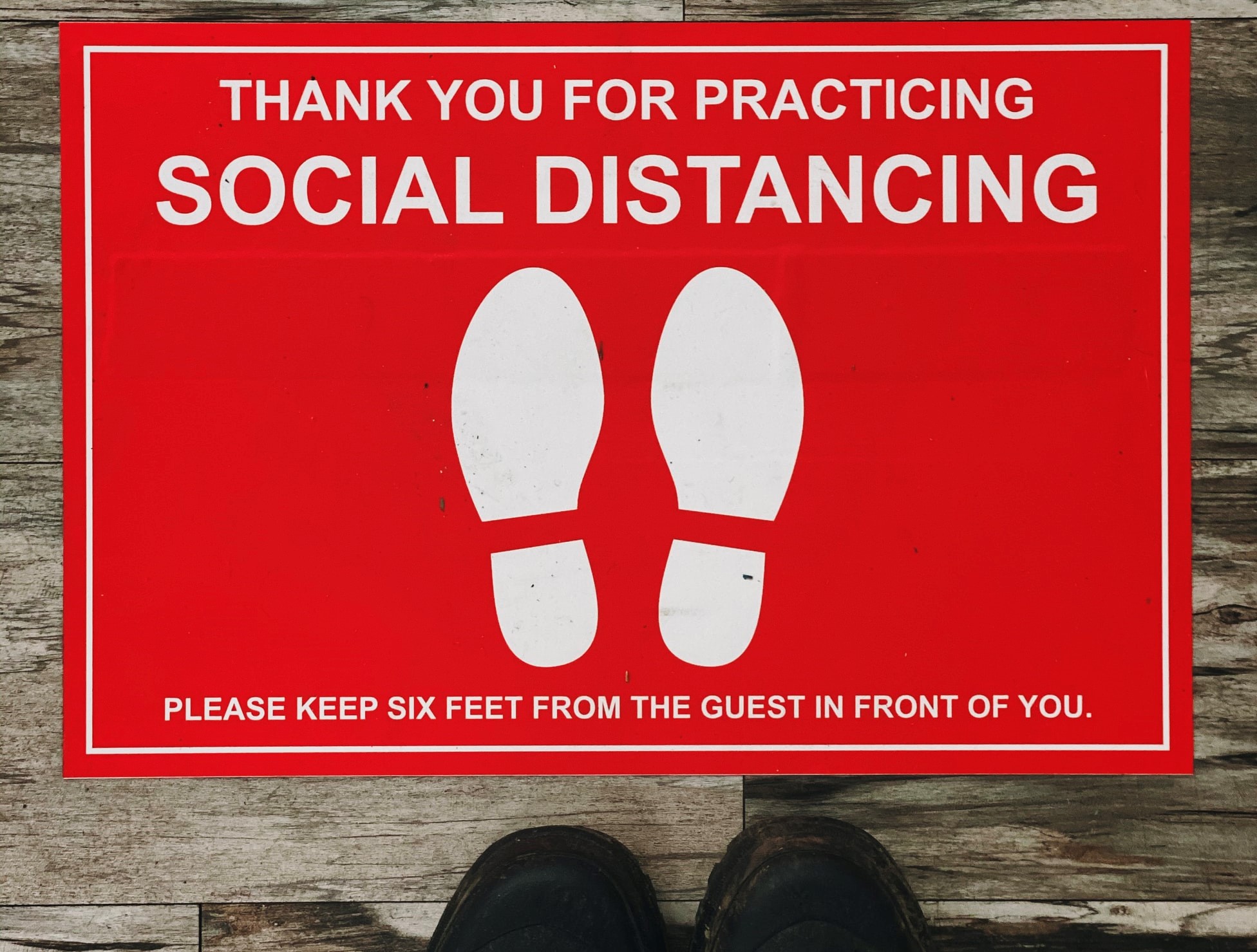BLOG
Violence against retail staff | Employers’ duties during COVID-19
Written on 2 June 2021
All businesses have been impacted by COVID-19 in some way or another. However, for retailers, COVID-19 has presented another hazard: an increased risk of workplace violence. With shop workers on the front line of conveying in-store COVID-19 health and safety messages to customers, and restrictions such as mask-wearing and social distancing still in effect, staff continue to experience verbal abuse and threats of violence from customers on a daily basis.
Worrying statistics
According to the British Retail Consortium, some 400 shop workers are physically attacked every day. While violence against retail workers has long been an issue, the coronavirus pandemic has certainly accelerated the problem.
In fact, Co-op stores reported a 36% rise in violence towards shop workers between March 2020 and October 2020, and a recent survey by the retail workers union Usdaw found staff enforcement of coronavirus restrictions and policies – such as mandatory mask wearing, queuing, one-way systems and limits on store numbers – to be a leading cause of violent incidents.
Similarly, the latest crime survey by the Association of Convenience Stores reports that 89% of those working in local shops experience some kind of abuse. The survey estimates that 40,000 incidents of violence occurred in the sector last year, with 65% of respondents having witnessed COVID-related threats to staff.
These shocking reports have promoted 65 leading retailers and industry bodies to write to the Prime Minister, urging the government to “treat the issue with the seriousness it deserves and improve protection for our employees by creating a new statutory offence of assaulting, threatening or abusing a retail worker.”
Related Content
Do you need support?
Speak to us for an honest, no obligation chat on:
0345 226 8393 Lines are open 9am – 5pm
Retailers' duties
Under the Health and Safety at Work etc Act 1974, employers have a legal duty to protect the health, safety and welfare of staff. This duty includes taking all reasonably practicable measures to prevent all forms of work-related violence, which the Health and Safety Executive defines as “any incident in which a person is abused, threatened or assaulted in circumstances relating to their work”. This includes:
- Physical violence – kicking, spitting, hitting or pushing, as well as more extreme violence with weapons.
- Verbal abuse – shouting, swearing or insults, racial or sexual abuse, threats and intimidation.
Victims suffer not only physical injury but also psychological effects, such as anxiety and stress. A 2019 report by City, University of London, said rising violent retail crime was causing “long-lasting anxiety and post-traumatic stress disorder”.
The risk of violence must be eliminated or reduced in the same way as any other possible cause of harm in the workplace, such as lifting heavy loads. Key to doing this is carrying out a risk assessment, as this will help to determine whether violence or aggression is a problem for your staff and business, and how matters can be improved. The assessment will also enable you to produce a policy and procedure for dealing with such matters and should form part of your wider health and safety policy.
Having considered and assessed the risk of in-store violence and aggression, you should have policies, measures and training in place that aim to minimise that risk to as low a level as is reasonably practicable. This means balancing the time, cost and effort involved in implementing a safety measure against the level of risk posed. Only if the former grossly outweighs the latter would you be justified in not taking that step (and even then, you would be expected to reduce risk using other, more proportionate controls).
Your risk assessment should of course have been updated following the government’s COVID-19 secure requirements, taking into account the increased risk of violence and aggression to staff.

Preventative measures
Acting to prevent incidents of violence not only protects your employees but also reduces the risk of claims being made against you by injured employees. To help protect shopworkers and increase your claims defensibility, follow these five tips:
Act before violence occurs. Carry out individual store risk assessments as they take into account factors specific to particular stores, such as an area’s crime rating and number of prior violent incidents. Be sure to consult staff as they often have better insight into potential problems and may even have ideas about solving them.
Install physical controls. This includes deterrents such as CCTV in high-risk areas or screening by sales points. Remember, while barriers protect staff from coronavirus, they may create additional hazards if workers aren’t able to easily remove themselves from an area when there’s a threat. Also consider panic buttons and security communication systems.
Post warning signs. Remind customers about your mask-wearing policy and social distancing measures and reiterate that violence won’t be tolerated. You can also do this on your website.
Provide training. Training in dealing with difficult and challenging behaviour is a must. It should include threat recognition, conflict resolution, non-violent response and instruction on escalation processes. Identify a safe area for employees to go to if they feel they are in danger, such as a room that locks from the inside and has a second exit route, phone or silent alarm.
Revisit training regularly. Annual refreshers are normally appropriate. However, with staff typically having to enforce wearing of face coverings, consider more frequent reminders such as during weekly store briefings or team meetings.
Get support with your safety responsibilities
Retailers are responsible for taking all practicable precautions against “
To find out how our fixed-fee Health & Safety service can help you to operate compliantly during coronavirus and beyond, call 0345 226 8393 or request your free consultation using the button below.
Sign up for the latest news & insights
Resources
Latest News & Insights

Hiring strategies to overcome the effects of rising unemployment in the UK
BLOG Written by Danielle Fargnoli-Read on 25 February 2026 Unemployment has crept up to its highest level in almost five years, with official figures now

Language of appreciation at work | Why individual motivation matters
BLOG Written by Becs Bridge, Director of Learning & Development, on 23 January 2026 In today’s competitive talent market, the organisations that retain top performers

Recruitment trends 2026 | 7 things to expect when hiring this year
BLOG Written by Danielle Fargnoli-Read on 22 January 2026 If there’s one thing recruitment has taught us over the past few years it is that

Breach of employment contract | What employers need to know to avoid Tribunal claims
BLOG Written on 15 January 2026 Breach of contract is a common concern for businesses, particularly during resignations, dismissals, or disputes over pay, notice, or

When does the Employment Rights Bill 2025 come into effect?
BLOG Written on 19 December 2025 It’s been the most talked-about topic in HR in 2025 and the question everyone’s been asking is, “When is

Workforce planning | Structuring your business for success
BLOG Written by Danielle Fargnoli-Read (updated 5 February 2026) Strategic workforce planning is a vital business process that’ll align your organisational needs with long-term goals.

Changes to day one unfair dismissal rights | New six-month protection explained
BLOG Written by Patrick Carroll-Fogg on 1 December 2025 Of the almost 75 individual tweaks and changes set to be introduced under the Employment Rights

Breaking down the Budget 2025 for employers
BLOG Written by Daniel Rawcliffe on 27 November 2025 The recently announced UK Budget 2025 is a challenging one for small businesses. While it covers

AI for interviews with job candidates | Balancing technology with a human touch
BLOG Written by Danielle Fargnoli-Read and Tracey Burke on 21 November 2025 Businesses using AI for interviews are reshaping the way UK businesses approach hiring,




